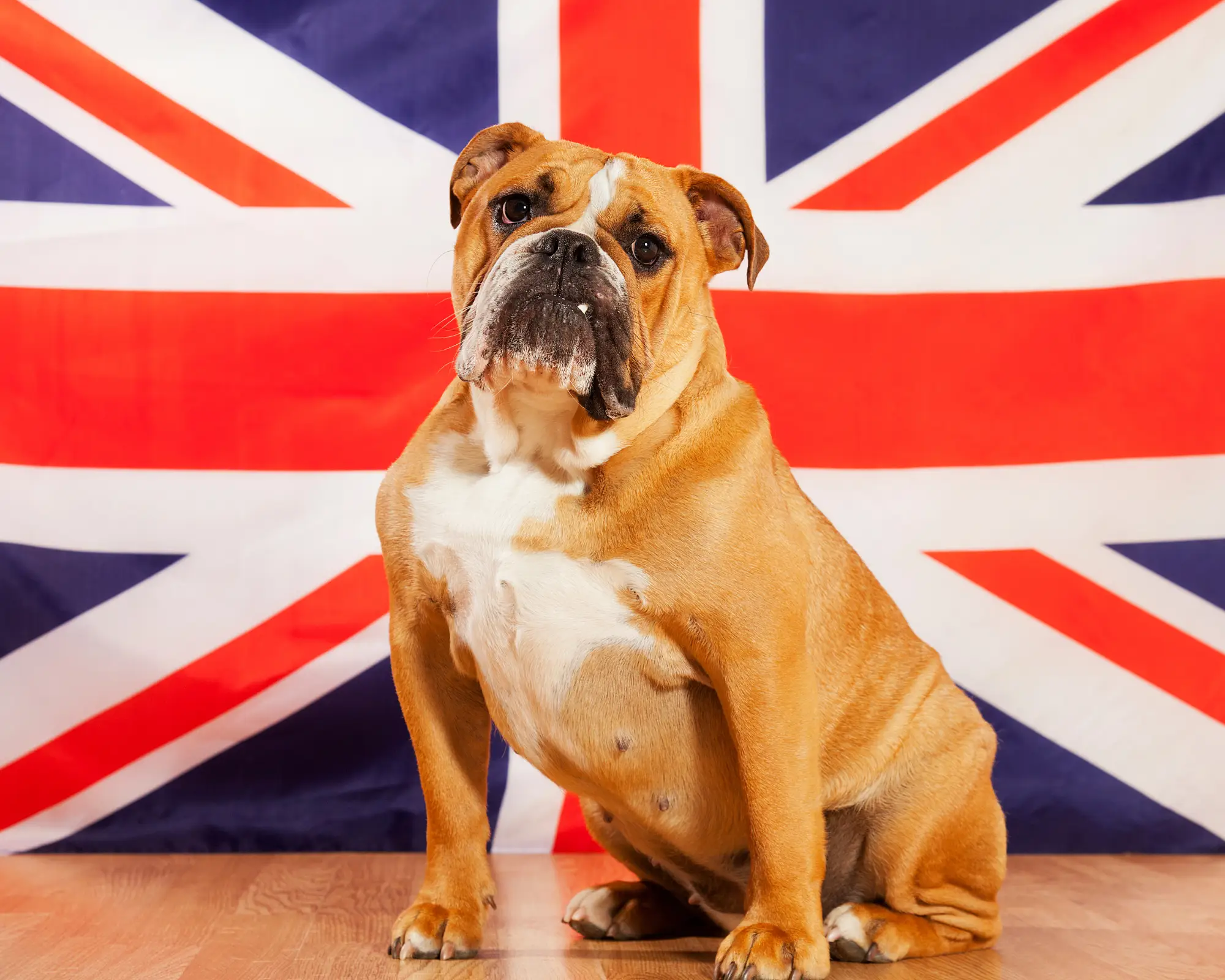Overview
If you or someone you know is planning to bring a dog or a cat to Great Britain, it’s crucial to understand the specific import requirements and regulations. Find below for a few things to keep in mind if you don’t have time to read our full article:
- Most important for the UK: pets flying in on commercial flights (except assistance dogs) have to fly as cargo!
- The rules for Northern Ireland differ from those from Great Britain, and some dog breeds are banned entirely.
- Pets must be microchipped and vaccinated against rabies, and possibly need tapeworm treatment depending on their country of origin. For pets from “Part 1” listed countries, a pet passport is acceptable, while pets from other regions need to obtain an animal health certificate.
- For non-commercial moves, pets should be accompanied by their owners or an authorised representative.
- If you have more than 5 pets or engage in commercial relocation, professional guidance is recommended.
- Great Britain is pet-friendly, with ample amenities, but be prepared for the damp climate and ensure your new home accepts pets.
Consider working with a professional pet relocation service that can streamline this process, helping to navigate regulations and ensuring a smooth transition for your furry friend.
Essential considerations before bringing pet dogs and cats to Great Britain
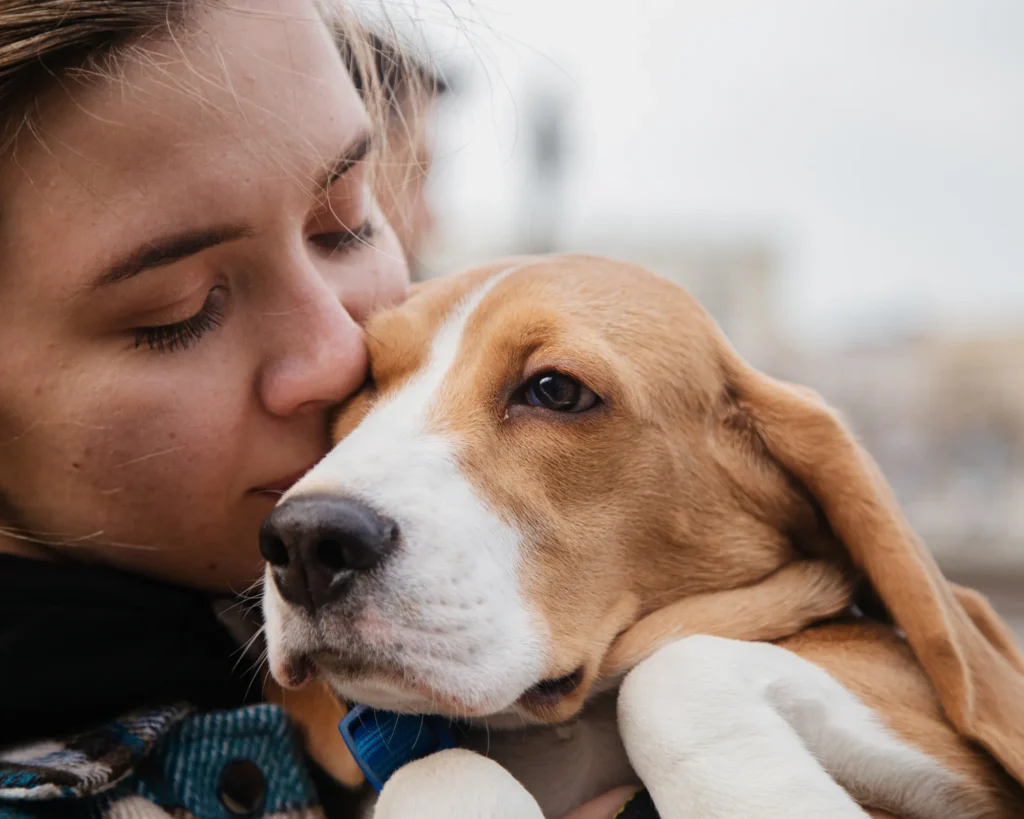
When bringing pet dogs and cats to Great Britain, it’s important to note that there are different rules on pet travel into Northern Ireland.
Great Britain has also banned a number of dog breeds, and if you bring such a dog into Great Britain, police or local authorities are in the right to take it away from you and even destroy it. Read more about banned dog breeds here.
The import requirements for Great Britain will depend on the species you plan to import and the exporting country that your pet is coming from.
In our blog post about pet travel into the EU we were discussing the EU pet passport. Please note that until January 1, 2021, veterinarians in Great Britain were allowed to issue EU pet passports. Since then they are no longer allowed to issue, nor update them with vaccination records. Your pet will instead be needing an animal health certificate.
Just like the European Union, Great Britain sets different rules depending on the nature of the purpose of the pet travel; private journeys with pet animals (non-commercial); and when there’s a change of ownership or sale involved (commercial). In this article we will be looking at the non-commercial movement of pet animals into Great Britain. If you are interested in a pet move of commercial nature, we recommend you getting in touch with a professional pet mover for advice and support.
Introduction to England, Wales and Scotland: What to know about life in Great Britain?

Saying goodbye to your old home and relocating to a whole new country is an exciting adventure, and the thrill often doubles for pet owners. However, such a massive move also comes with challenges and concerns. Pet owners need to know what awaits in their new home to ensure the transition has no bumps and scrapes when bringing pet dogs and cats to Great Britain.
Whether moving to England, Wales, or Scotland, pawrents need to familiarise themselves with a few key aspects of British living because each region offers its own unique environment and set of opportunities for them. Here’s a quick guide to help you, as a pet owner, better prepare and acclimate quicker to life in the British Isles.
A warm welcome for pets
Much like many countries in the European Union, the United Kingdom has endless love and compassion for cute furry creatures. Pets are generally well-regarded in the society, from dog-friendly cafe shops to lush-green parks and extensive meadows.
Therefore, you and your fur baby are more than welcome in most public places and settings. Each region caters a good number of facilities and amenities for humans’ loving friends. Cities like London, Cardiff, and Edinburgh are known for loving attitude towards animals, with lots of pet services and amenities. Check them out to make your pet feel at home and loved.
Weather considerations

We all know too well that rain is frequent in Great Britain, with mild winters and cool summers. This technically means that your pet is unlikely to suffer from heatstroke, but the damp and windy weather may cause breeds with shorter coats to get sick. If your pet is short-haired, they may need extra care and adjustments. It is necessary to armour your furry baby and yourself with raincoats, suitable pet clothing, bedding, blankets, and waterproof gears for a rainy day. You know, better be safe than sorry!
Pet-friendly housing
Finding a pet-friendly accommodation is the first step of your new journey to the UK with your fur baby. You can easily find many rental properties in the nation are open to tenants accompanied by a fluffball. However, keep in mind that not all accommodations welcome pets. It’s crucial to deepen your research or work closely with a real estate agent to confirm pet policies before sealing the deal.
Healthcare and services
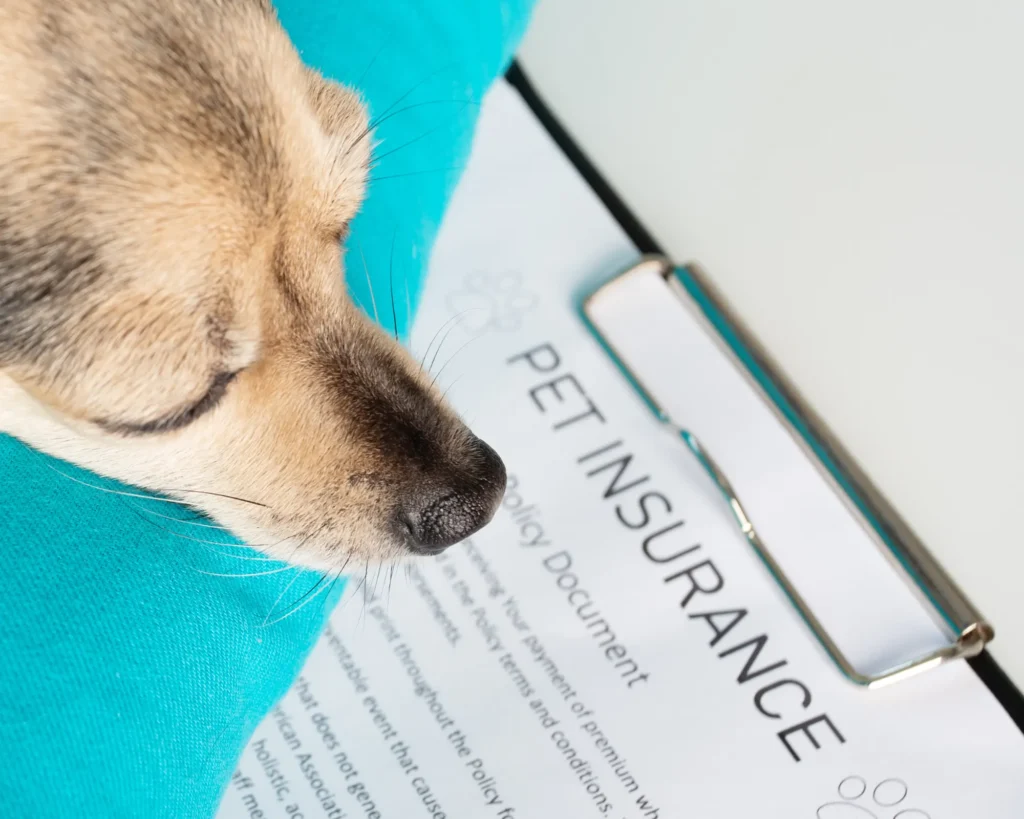
Veterinary services in GB are high quality, with numerous well-equipped clinics and hospitals across the nation. It’s always best to have your pet registered under a local vet upon your arrival to ensure your pet(s) have convenient access to veterinary care during their stay when needed. Another tip to maintain your pet’s well-being is opting for pet insurance. Such a safety net can give you greater peace of mind, especially when they face unexpected, complicated health issues, which can be costly to treat.
Eligibility overview for bringing pet dogs to Great Britain
Pets are only allowed to enter Great Britain using an approved route and company.
If entering by air, all pets need to arrive as cargo, unless flying in on a private jet, or if it’s an assistance dog.
When entering Great Britain either by sea or the Eurotunnel, make sure the company you’re travelling with allows your pet onboard.
Pets are only allowed to enter Great Britain by private boat if they are coming from Ireland or Northern Ireland.
Below follow the general requirements to import a pet cat, dog or ferret into Great Britain.
Age limit
There is no strict age limit for bringing a pet into Great Britain, however, indirectly through the age limits imposed for the rabies vaccination, your pet should be at least 15 weeks old.
Read more about this here.
Microchip
Pets entering Great Britain must have a microchip implanted before, or at the same time as they receive their rabies vaccination. A microchip is the only approved form of identification, which is essential for your pet’s pet travel preparation.
Should your pet not have a microchip at the time of rabies vaccination, it will need to be re-vaccinated.
A microchip allows your veterinarian to identify your pet by scanning the microchip with an ISO compatible microchip reader.
The microchip must be implanted before any mandatory rabies vaccination. The veterinarian must scan the microchip before every vaccination and blood test and make sure the number is correctly noted on all required forms and in all accompanying veterinary records.
Approved microchips are either 10 or 15 digits long, and they do NOT start with 999.
A clearly readable tattoo (applied before 3 July 2011) is also allowed instead of a microchip. However other parties involved in your pet’s relocation may require a scannable ISO microchip.
Rabies vaccination
Great Britain requires pets to receive their first rabies vaccination at 12 weeks old, at the earliest.
Further vaccinations should be given before the validity of the previous one expires.
The vaccination must be given by an authorised veterinarian, who will also verify that the pet was microchipped prior to inoculation.
Your pet is not allowed to enter Great Britain within 21 days from the last vaccination.
Great Britain also imposes certain rules regarding the Canvac R vaccination and the Canvac DHPPiL+ R vaccination. If this is the case for your pet, please read more carefully on the UK.gov website.
Tapeworm (Echinococcus multilocularis) treatment
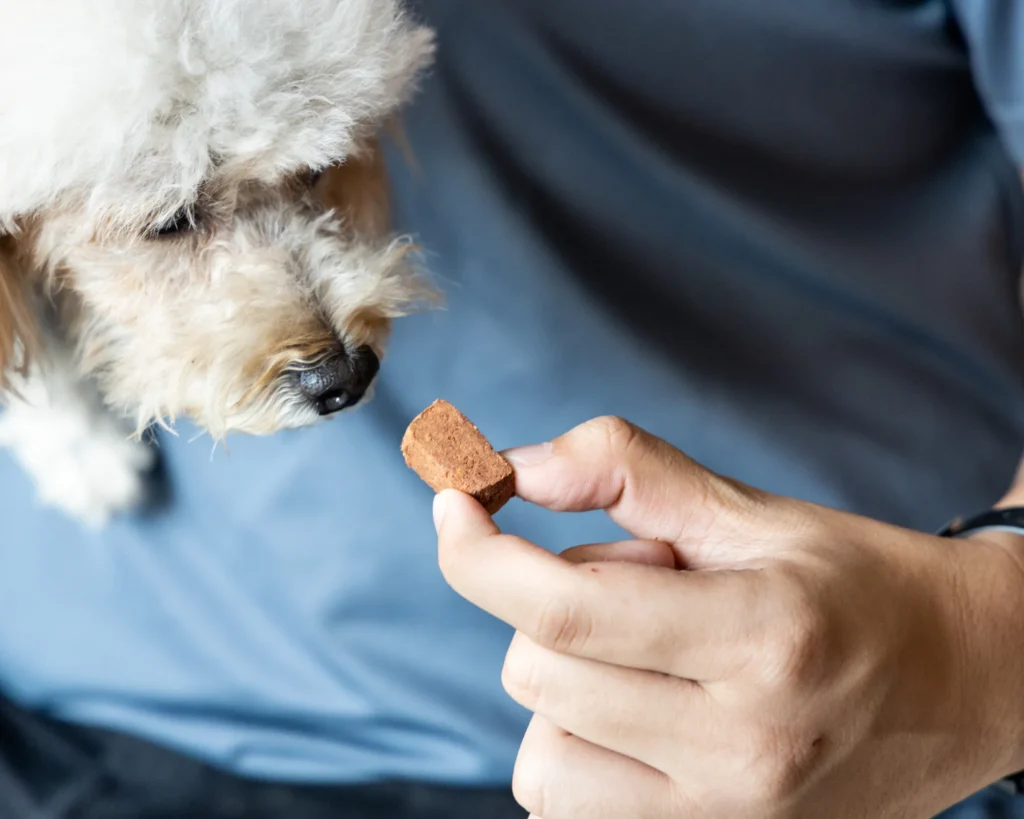
All dogs coming to Great Britain must receive treatment against tapeworm between 24 and 120 hours from their entry into Great Britain.
The treatment must contain praziquantel or an equivalent, be given by a veterinarian, and be noted in the pet passport or in the animal health certificate.
Required pet documentation
The pet documentation required to travel together with your pet depends on the country of departure.
Great Britain groups the world countries into 3 groups: ‘part 1’ listed countries, ‘part 2’ listed countries, and not listed countries.
Check the below lists to see which group your departure country belongs to:
“Part 1” listed countries:
- EU countries
- Andorra
- Azores and Madeira
- Canary Islands
- French Guiana
- Gibraltar
- Greenland and the Faroe Islands
- Guadeloupe
- Iceland
- Liechtenstein
- Martinique
- Mayotte (French territory)
- Monaco
- Norway
- Réunion (French territory)
- Saint Barthélemy (French Territory)
- San Marino
- Saint Martin (French part of the island – French territory)
- Switzerland
- Vatican City State
“Part 2” listed countries:
- Antigua and Barbuda
- Argentina
- Aruba
- Ascension Island
- Australia
- Bahrain
- Barbados
- Belarus
- Bermuda
- BES Islands (Bonair, Saint Eustatius and Saba)
- Bosnia-Herzegovina
- British Virgin Islands
- Canada
- Cayman Islands
- Chile
- Curaçao
- Falkland Islands
- Fiji
- French Polynesia
- Hong Kong
- Jamaica
- Japan
- Malaysia
- Mauritius
- Mexico
- Montserrat
- New Caledonia
- New Zealand
- North Macedonia
- Russian Federation
- Saint Maarten
- Singapore
- St Helena
- St Kitts and Nevis
- St Lucia
- St Pierre and Miquelon
- St Vincent and The Grenadines
- Taiwan
- Trinidad and Tobago
- United Arab Emirates
- USA (includes American Samoa, Guam, Northern Mariana Islands, Puerto Rico and the US Virgin Islands)
- Vanuatu
- Wallis and Futuna
Depending on what group your departure country belongs to, you have the choice of 4 different documents:
- Pet passport issued in a ‘part 1’ listed country
- Animal Health Certificate (AHC) issued in Great Britain in the last 4 months
- Pet passport issued in Great Britain before January 1, 2021
- Great Britain pet health certificate
Pet passport
Pet passports can be issued by authorised veterinarians in Part 1 countries. UK is not a Part 1 country, and passports issued prior to January 1, 2021 in by UK veterinarians are not valid for entry to Great Britain.
The passport carries details about the pet, the owner and the issuing veterinarian:
- Pet description and details
- Microchip details / tattoo code
- Rabies vaccination record and blood test (if needed)
- Contact details of the owner and issuing veterinarian
- Tapeworm treatment
Animal health certificate
This certificate applies for animals who are coming back to Great Britain from a Part 1 country. It can only be issued by an official veterinarian (OV) in Great Britain. Note that all veterinarians are not OV, but should most likely be able to refer you to one.
Up to five pets can be added to one health certificate, and it will be valid for re-entry into Great Britain for 4 months following the issuance date.
There is a mandatory waiting period of 21 days from a rabies vaccination before issuance of a health certificate.
Great Britain pet health certificate
Not to be confused with the animal health certificate issued by an OV in Great Britain, this health certificate must be issued by a government veterinarian within 10 days of your arrival into Great Britain from a Part 2 listed country or a country that is not listed.
It can also be used if you’re travelling from a Part 1 country and you don’t have a pet passport or a valid animal health certificate issued in Great Britain.
Valid Rabies Neutralizing Antibody Titer Test (RNATT) result
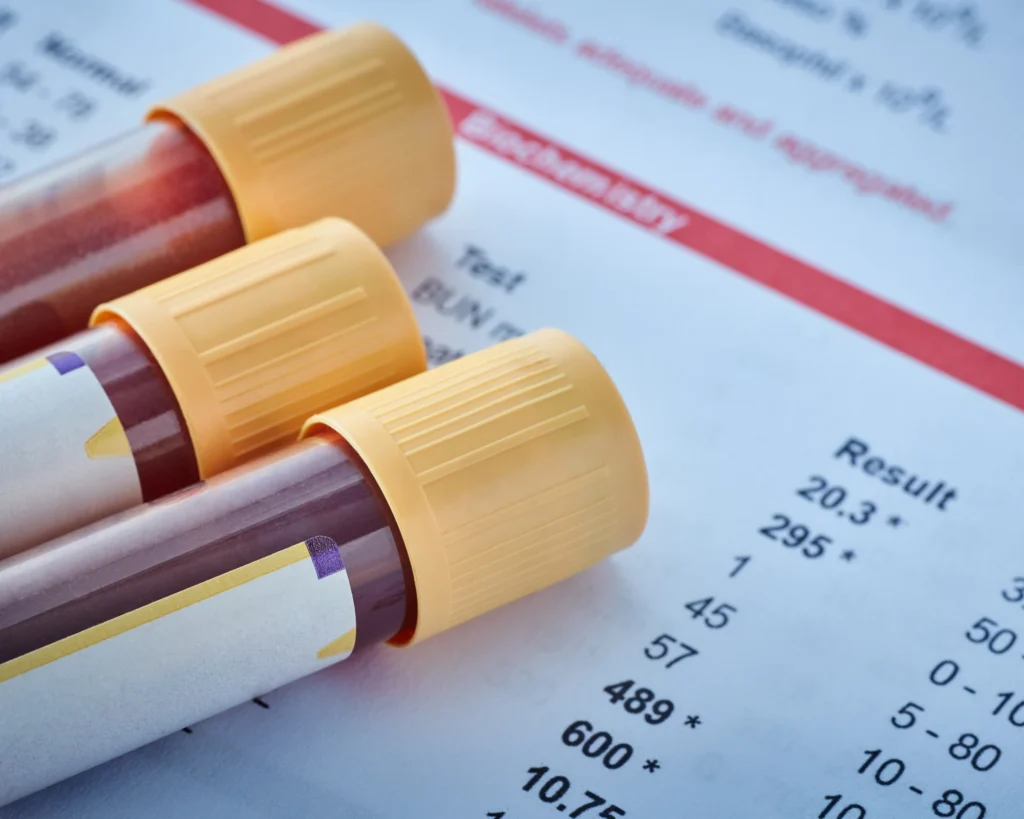
If travelling to Great Britain from a country that is not listed, you will need to present a valid rabies serology titer test result.
The blood test has to be performed by a EU approved blood-testing laboratory and the result should be ≥0.5 IU/mL for it to be considered passing or adequate.
The blood for the titer test should be drawn at the earliest 30 days after a dog has had its last vaccination.
The blood can’t be drawn closer than 3 months before arrival to Great Britain.
If your pet was vaccinated, blood tested and given a pet passport or health certificate in the EU before travelling to a country that is not listed, there is no need to wait for 3 months after the blood draw before travelling.
The validity of the test result is for life as long as you keep your dog’s vaccinations up-to-date and without lapse.
A list of approved laboratories can be found here.
Guideline for commercial pet importation to Great Britain
When bringing a pet into Great Britain for non-commercial purposes, the general rule is that the pet and its owner must travel within 5 days of each other.
If you are not able to travel with your pet yourself, you can give written permission to another person to accompany your pet on your behalf.
If you plan to bring in more than five animals, or if your intention is to rehome, sell, or otherwise transfer the ownership of the animals, it will be considered a commercial import and your pet(s) will need to comply with different import regulations. We recommend you contact a professional pet relocation agent to support you on such a move.
How Purrfect Pilots can help with bringing pet dogs and cats to Great Britain
As an experienced pet moving agent specialising in international relocation, we are familiar with the full process of bringing pet dogs and cats to Great Britain. Our job is to ensure that your pet has the most comfortable transition possible during their journey and to give you regular updates about your pet throughout the move.
To take off some of the financial burden of bringing your pet to Great Britain, we can offer tailored payment plans. Ask your Purrfect Pilot about available options.
During our years of operations, we have built a wide network of professional pet care professionals with the same commitment and passion as we have.
Your pet will only be handled by carefully selected partners where our team can not be present. Our partners are professionally trained in handling live animals according to the IATA live animal regulations and meet Purrfect Pilots’ strict partner requirements.
We offer full transparency from pricing to execution of your pet move and we are great at planning perfect moves.
But to be honest, our biggest strength lies in our industry knowledge and ability to “fix things” when needed. Because moving a pet can become quite the adventure and we always work with a B and a C backup plan to get your pet to destination.
Few pet moves are one-size-fits-all, at Purrfect Pilots we want to listen to your expectations and preferences, and support you in the way you need and want us to.
Purrfect Pilots is a dependable pet mover that helps relocate and travel pets to many countries, including those countries and regions with strict import regulations like the U.S., EU, and Australia. Are you looking to move your pet to Great Britain? We can help you reunite with your pet.


